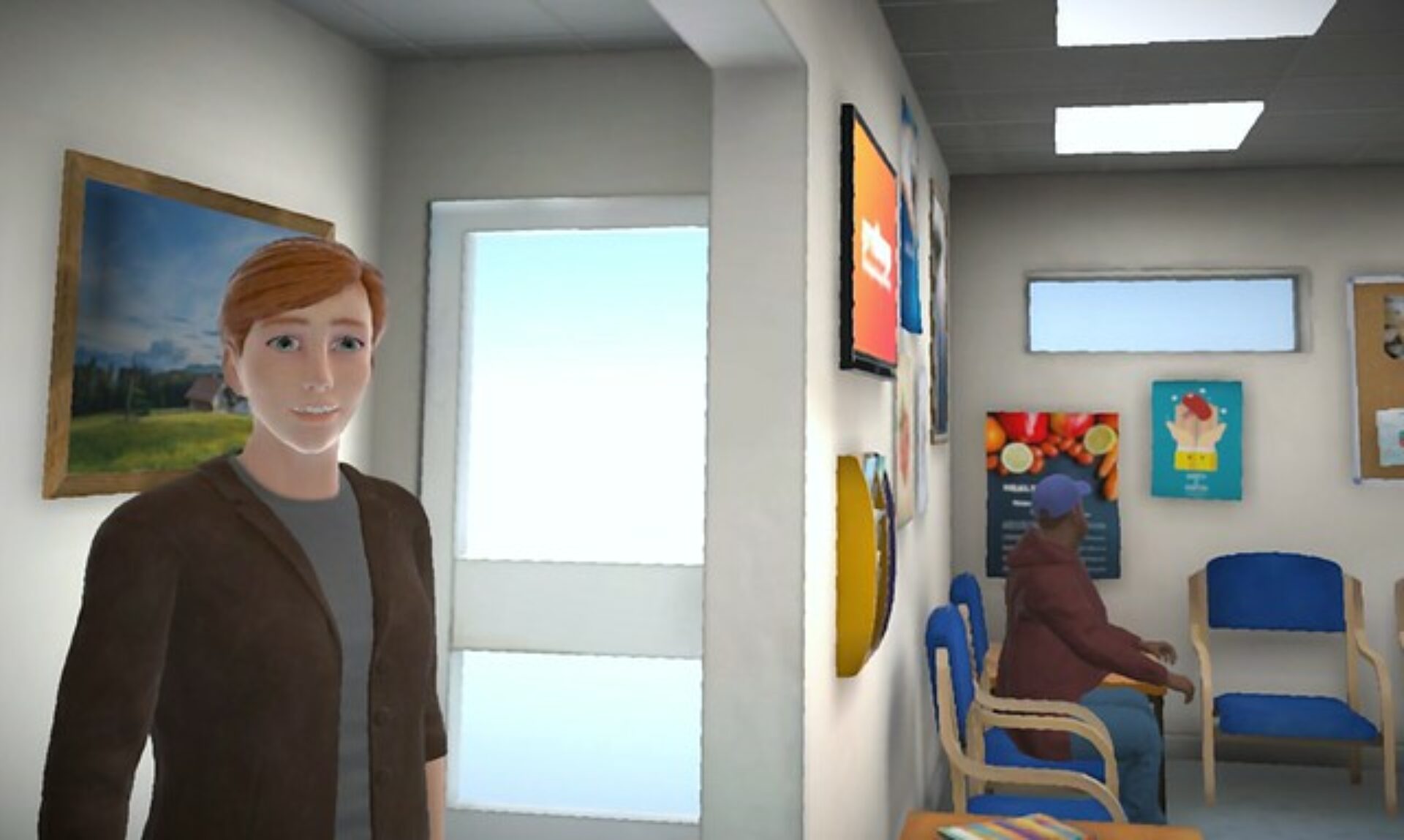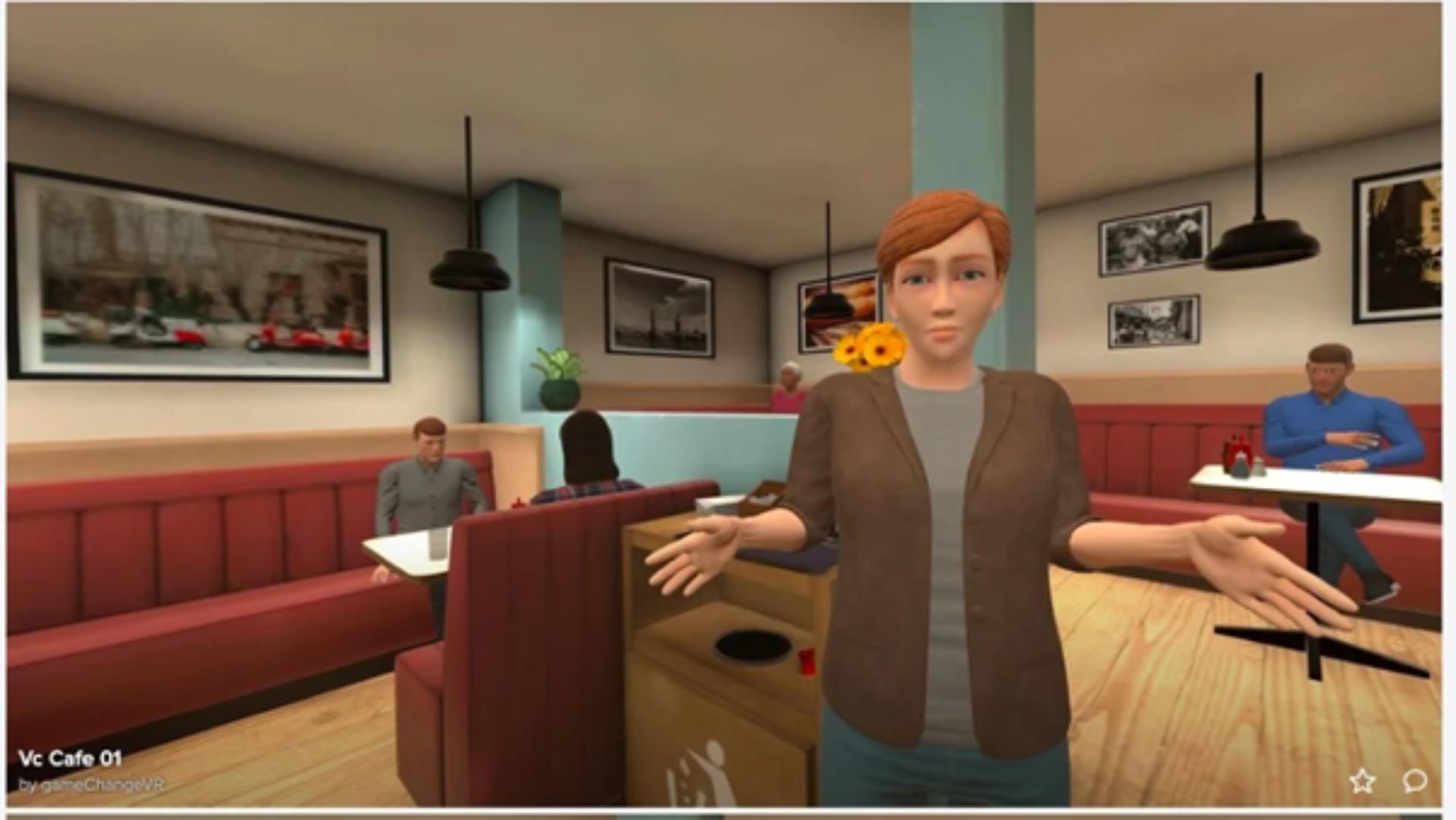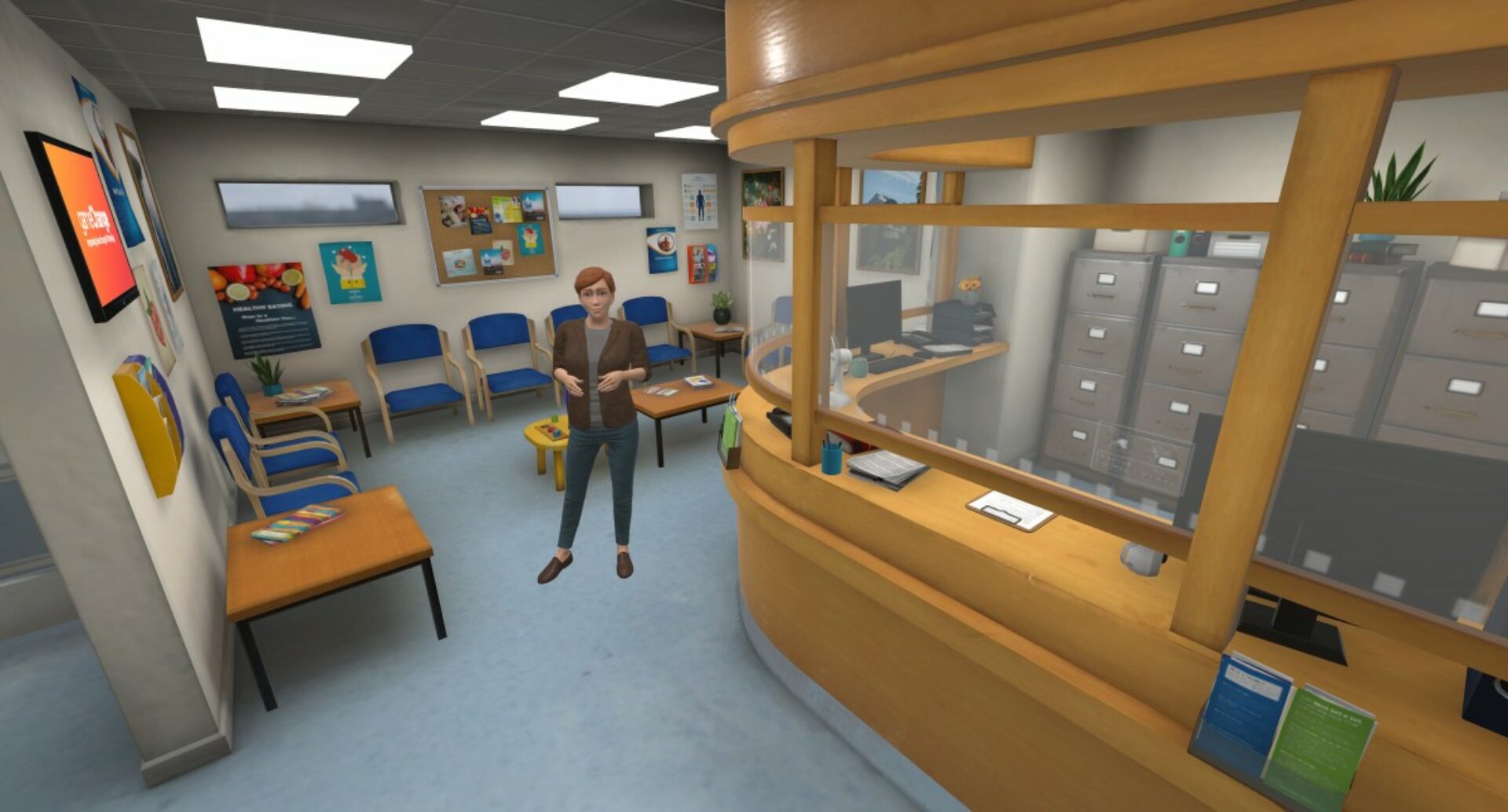Lived experience was heavily embedded in our recent project about virtual reality and psychosis – find out how and why we did it this way, and what it brought to the table.
The recent gameChange project, which used virtual reality (VR) to help people living with psychosis, had a strong lived-experience focus.
Lived experience is at the heart of all McPin’s work, and perfectly illustrates why and how to do this type of work, and why it’s worth it.

Image created for the gameChange tech
Lived experience in gameChange
McPin facilitated the service user involvement for the gameChange study through a Lived Experience Advisory Panel (LEAP) of 11 service users. The LEAP provided advice and assistance to the wider study team.
McPin and the LEAP also worked with the Royal College of Art, who ran workshops to re-design the VR environments.
A McPin research team, which included peer researchers, led a qualitative interview study with trial participants to explore their experience of the therapy and what they think the impact has been on their lives.
From developing the tech, to finding out how the participants felt about the study, to reflecting our assumptions, lived experience was at the heart of the entire process.
The research team were very interested in what I had to say...and I began to see that my negative experiences were being used in a positive way. It was transformative to go from feeling invisible to having my experiences related to by others.
LEAP member
The case study also provides recommendations, drawn from the experience of working on gameChange, which can help facilitate lived experience work in future research studies.
About gameChange
Many people experiencing psychosis find social situations difficult, which means they may withdraw from everyday activities. This isolation and lack of activity means they then often develop physical health issues and their mental health deteriorates.
Only 5% of people experiencing psychosis currently receive psychological therapy, and that therapy usually doesn’t directly address social withdrawal.
This study used cutting-edge VR technology to let people practise skills in a computer-simulated world, as a way of helping them reduce problems in real life.
This, in turn, could help reduce anxiety and paranoia in people experiencing psychosis, as well as improving their engagement in everyday activities.
Funded by the National Institute of Health Research (NiHR), Professor Daniel Freeman and his team at the University of Oxford worked with partner organisations to test the effectiveness of VR therapy for people with psychosis via a clinical trial.

Image developed for the gameChange tech
Find out more on the gameChange project page and website.
To find out more about lived experience work at McPin – and how to use lived experience in your own organisation – read our recently launched 10 for 10 resource: Using lived experience in the workplace
